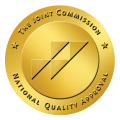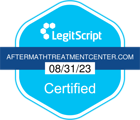Is my loved one addicted to drugs? This can be a tricky question to answer. It can be an even harder question to ask. When a loved one is showing signs that may make us believe they are struggling with drug abuse, we may initially disbelieve it. As parents, we will have doubts. As spouses, we do not want to believe it. We think it cannot happen to our loved ones. How is this possible? Addiction does not discriminate. It can take anybody, regardless of age.
If you suspect someone you love is addicted to drugs and are searching for “drug treatment near me,” contact Aftermath Addiction Treatment Center today at 855-795-1226. Our drug addiction treatment is designed to restore hope and health for those struggling with substance abuse. We offer comprehensive care that includes medical detox, individual and group therapy, aftercare planning, and more.
What Are Signs That My Loved One is Addicted to Drugs?
There are telltale signs that someone you love has an addiction. The signs can come in the form of behavior changes in your loved one or physical symptoms that present:
- Agitation and avoidance of conversations
- A lack of concern over hygiene
- Long sleeves (to hide scars from injection sites)
- Sudden poor performance at school
- Trouble at work
- Legal issues
- Mood swings
- Increased irritability
- Burst of anger
- Runny nose
- Flu-like symptoms
- Drowsiness or fatigue
- Rapid speech
- Slurred speech
- Bloodshot eyes
- Dilated or constricted pupils
- Tremors or shakes
- Unexplained nose bleeds
Another sign that a loved one may be addicted to drugs is the presence of drug paraphernalia. Such items could include small-weight scales, glass pipes, rolling papers, cut straws, lighters, small plastic baggies, balloons, vials, and hypodermic needles.
What Do I Do if My Family Member is Addicted to Drugs?
You will need to address the drug addiction with your loved one. You need to have a conversation with your loved one about their drug use. But more importantly, you should seek the help of a trained professional. The intervention of a trained professional with experience in addiction treatment is important in addressing your family member’s drug abuse. These may simply be a few family therapy sessions to address the drug abuse. The help you may seek is that of an interventionist who will help you address your loved one with their drug abuse and how it has begun to affect their life as well as the lives of those around them. But it all depends on how far the addiction has progressed. A physical dependency may have developed in the individual. If that is the case, admission to a medically supervised inpatient drug and alcohol detox facility is needed. At an inpatient drug and alcohol detox, your loved one will be cared for by medical and nursing staff while they are stabilized from the physical withdrawal symptoms from drugs.
How Can I Help a Drug-Addicted Family Member?
Addiction is not a choice. It is not something that an individual can simply control through sheer willpower. The compulsion to use drugs and alcohol for an addicted individual is so powerful it, in fact, takes over their will. A drug-addicted individual may not even want to continue their use but are forced to pick up and use the drug due to the compulsion of the addiction. It can be a complex concept to grasp if a person has never experienced it or witnessed it firsthand. The idea that something controls every fiber of your being against your will for one goal, despite everything in your life telling you to stop, can be unfathomable.
It should be noted that the drug-addicted individual may not be ready to stop abusing drugs. Friends and family can only do so much if this is the case. The biggest thing you could do for a loved one struggling with drug addiction is set healthy boundaries. This will prevent them from being co-dependent on their friends and family during their addiction. It also will ensure that the family and friends of a drug-addicted individual can protect themselves but still be present to provide help if the substance abuser reaches out. Some you can establish healthy boundaries and still help your drug-addicted loved one are:
- Set clear financial boundaries. Inform the drug-addicted individual that you will not let them borrow money.
- Establish a safe environment. Ensure the drug-addicted individual understands they cannot be around if they are abusing drugs.
- Ensure the safety of children. Inform the drug-addicted individual of boundaries about seeing their children while using drugs. They need to understand it is not to keep them from their children but to protect the children.
- Be supportive. Remember, addiction is a disease, and they are sick.
- Be optimistic. Remind your loved one that you will be there for them and encourage them to seek help for their addiction.
Professional help is available for drug addiction. Partial hospitalization programs at outpatient drug and alcohol addiction treatment centers provide therapy and education to the drug-addicted individual. Other levels of care at drug and alcohol rehabs available to those seeking help from drug addiction are Intensive outpatient programs and outpatient programs.
Discover Aftermath Addiction Treatment Center’s Drug Addiction Treatment
At Aftermath Addiction Treatment Center, we provide a comprehensive approach to drug addiction treatment. Our programs are designed to guide our clients’ journey with compassion and understanding. We offer a safe, therapeutic environment designed to help our clients heal from the physical, mental, and emotional effects of drug addiction. Contact us at 855-795-1226 today to learn more about how to help your loved one.







